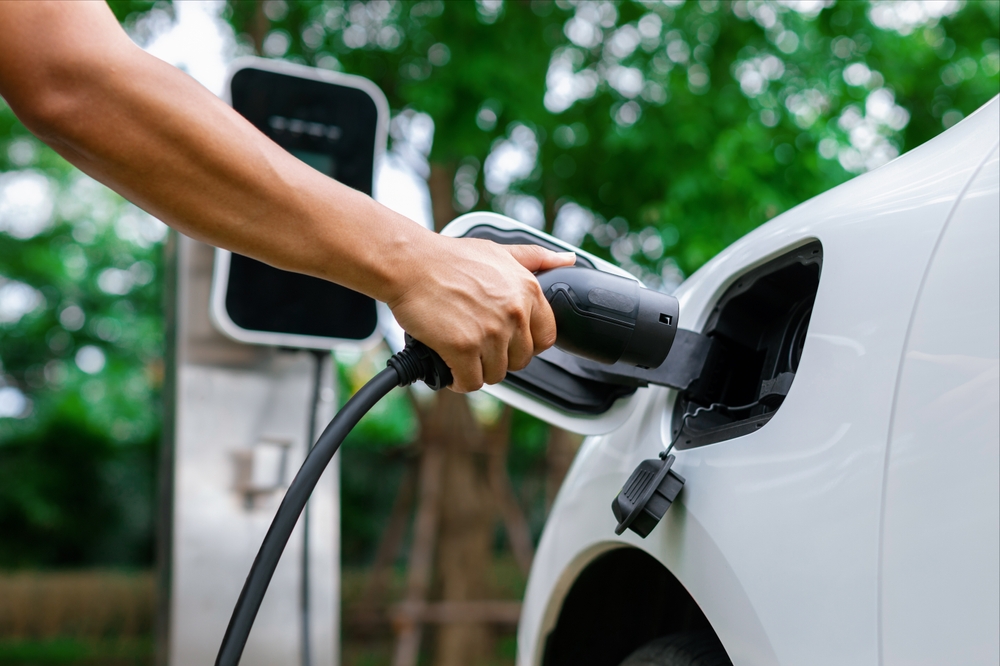As unelected bureaucrats mull over banning the sale of gas-powered cars on Tuesday (Aug. 22), a new study shows satisfaction with public charging stations is at an all-time low.
Policymakers should be alarmed. Released Aug. 16, the J.D. Power 2023 U.S. Electric Vehicle Experience Public Charging Study found that overall satisfaction continues to decline despite the increase in public charging stations across the country.
Charging station availability is a key impediment to wider electric vehicle adoption. This same finding was also the biggest impediment in 1997 when J.D. Power first studied consumer interest in electric vehicles (EV).
On a 1,000-point scale, customers utilizing public Level 2 chargers — typically found at homes and public stations — dwindled to a score of 617 — a 16-point decrease from last year’s report, which is the lowest level of satisfaction since the inception of the study in 2021. Meanwhile, direct current (DC) fast charges have experienced an even steeper decline, plummeting by 20 points to a satisfaction level of 654.
However, these were not the only categories to see a decline in satisfaction. Nearly every aspect evaluated also suffered setbacks, including location of chargers, time to charge and equipment functionality. Consumers are already wary regarding the availability of public charging, which is one of the primary factors behind the reluctance of potential EV buyers.
Brent Gruber, executive director of the EV practice at J.D Power, said, “The declining customer satisfaction scores for public charging should be concerning to automakers and more broadly, to public charging stakeholders.”
Gruber also noted that “the availability of public charging stations is still a critical obstacle, but it isn’t the only one. EV owners continue to have issues with many aspects of public charging, as the cost and speed of charging and the availability of things to do while waiting for their vehicle to charge are the least satisfying aspects.”
Being bored isn’t the only problem — it takes 4-10 hours for a Level 2 to charge a battery to 80% from empty. According to Gruber, “The reliability of public chargers continues to be a problem. The situation is stuck at a level where one of every five visits ends without charging, the majority of which are due to station outages.”
According to the study, 20% of users reported visiting a charger without actually charging their vehicle citing reasons ranging from the charger not functioning and long lines.
The time it takes to charge is also leading to dissatisfied customers. Level 2 decreased 36 points (scoring 455) and those using DC fast chargers weren’t much happier dropping 30 points to 588.
Tesla customers have a notable degree of contentment with the Tesla Supercharger network (scoring 745). However, once charging outside the network, their contentment takes a considerable dip dropping 200 points (scoring 550).
Currently, the state is deliberating a regulation that will prohibit the sale of new gas-powered vehicles by 2035. This decision is influenced by the fact that Connecticut’s regulations are linked to California’s emissions. In 2022, California’s regulatory authorities implemented this directive, which Connecticut will be compelled to adhere to.
Lawmakers handcuffed the state when they passed a bill in 2003 that states, “On or before December 31, 2004, the Commissioner of Energy and Environmental Protection shall adopt regulations, in accordance with the provisions of chapter 54, to implement the light duty motor vehicle emission standards of the state of California, and shall amend such regulations from time to time in accordance with changes in said standards.”
The law goes on to read, “Nothing in this section shall prohibit the Commissioner of Energy and Environmental Protection from establishing a program to require the sale, purchase and use of motor vehicles which comply with any regulations adopted by the commissioner which implement the California Motor vehicle emissions standards.”
A public hearing is currently scheduled on Tuesday (Aug. 22) on enacting emissions mandates requiring all new passenger vehicle sales to be electric by 2035. Senate Republican Leader Kevin Kelly (R-21st) sent a letter to the Department of Energy and Environmental Protection (DEEP) Commissioner Katie Dykes on Monday (Aug. 21) requesting a one-week extension and shifting the meeting format to be held in-person with a remote option.
No word yet from Commissioner Dykes on whether this request will be granted.
The public can sign up to weigh in or can submit written comments up until 5:00 P.M. on Wednesday (Aug. 23). To learn more and to take action, visit Yankee Institute’s ‘Take Action’ page HERE.

